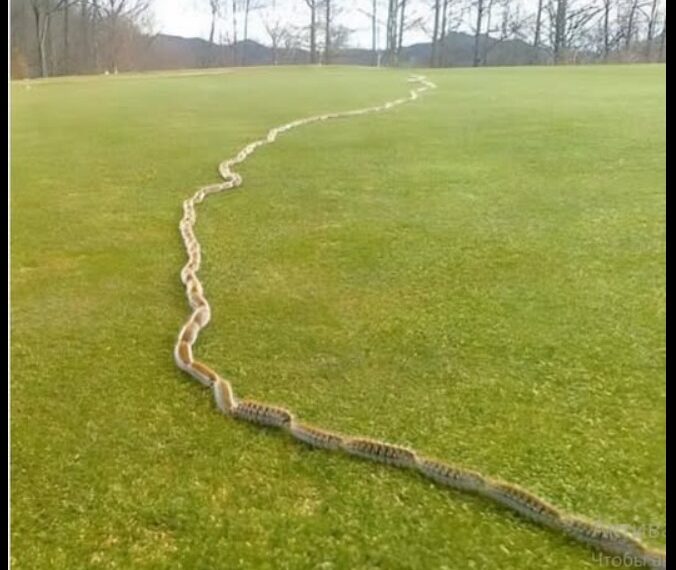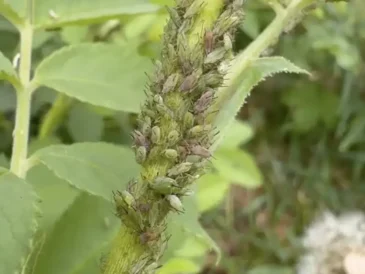In Humans:
- Severe allergic reactions
- Skin irritation or rashes
- Eye inflammation
- Respiratory issues if inhaled
In Pets (especially dogs):
- Inflammation of the tongue
- Vomiting, drooling, or mouth ulcers
- In severe cases, tissue necrosis or even death if untreated
That’s why you should never touch these caterpillars or let children or pets near them.
🌳 Where Are They Found?
You’re most likely to find them:
- In spring or early summer
- Marching across lawns, golf courses, parks, and forest floors
- Near pine or oak trees, where their nests are located — look for white, cottony clumps in branches
Their presence is spreading due to climate change, which allows them to survive in previously colder regions.
✅ What to Do If You See Them
- Don’t touch them or disturb the line.
- Keep children and pets away.
- Alert local environmental or pest control authorities — many countries treat them as invasive pests.
- If you or a pet makes contact, seek medical or veterinary help immediately.
🌱 A Rope of Danger Disguised by Nature
Nature is full of surprises. Something that looks so innocent — like a lazy rope in the grass — can turn out to be a living, moving, and potentially harmful group of creatures.
So next time you see a long, fuzzy “line” in the grass, look again — it just might be a parade of processionary caterpillars, and you’ll be glad you didn’t step on it.
Pages: 1 2




